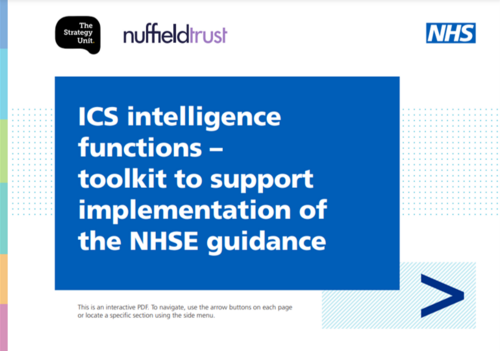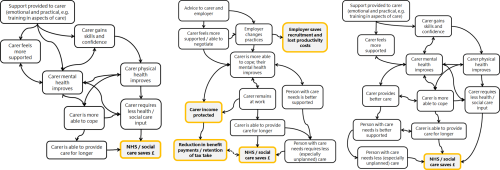 Secondary care | Service improvement
Secondary care | Service improvement
The NHS as an anchor institution: addressing fuel poverty
The number of households in fuel poverty in Staffordshire and Stoke-on-Trent (SSoT) is higher than the national average. As anchor institutions, NHS organisations can use their assets to influence the health and wellbeing of their local communities. The Strategy Unit was asked by the Midlands NHS…
 Better use of analysis | Policy | Integrated Care
Better use of analysis | Policy | Integrated Care
ICS intelligence functions – a toolkit to support the implementation of NHSE guidance
In 2020, NHSE announced the expectation that ICSs should develop “shared cross-system intelligence and analytical functions that use information to improve decision-making at every level.” This expectation has been followed by more detailed
 Inequalities | Public health and prevention | Secondary care
Inequalities | Public health and prevention | Secondary care
Socio-economic inequalities in coronary heart disease
There are substantial differences in mortality rates from cardiovascular disease between socio-economic groups. Our new tool provides an overview, for ICBs, of the points on the care pathway where inequalities emerge and are amplified
 Service configuration | Service improvement | Integrated Care
Service configuration | Service improvement | Integrated Care
Scoping study: the economics of caring
There is a clear moral case for supporting unpaid carers. They play an essential role in the lives of the people they care for; they often do so at a cost to their own wellbeing. But what is the economic case for supporting carers? And to what extent does the evidence base support this case?…